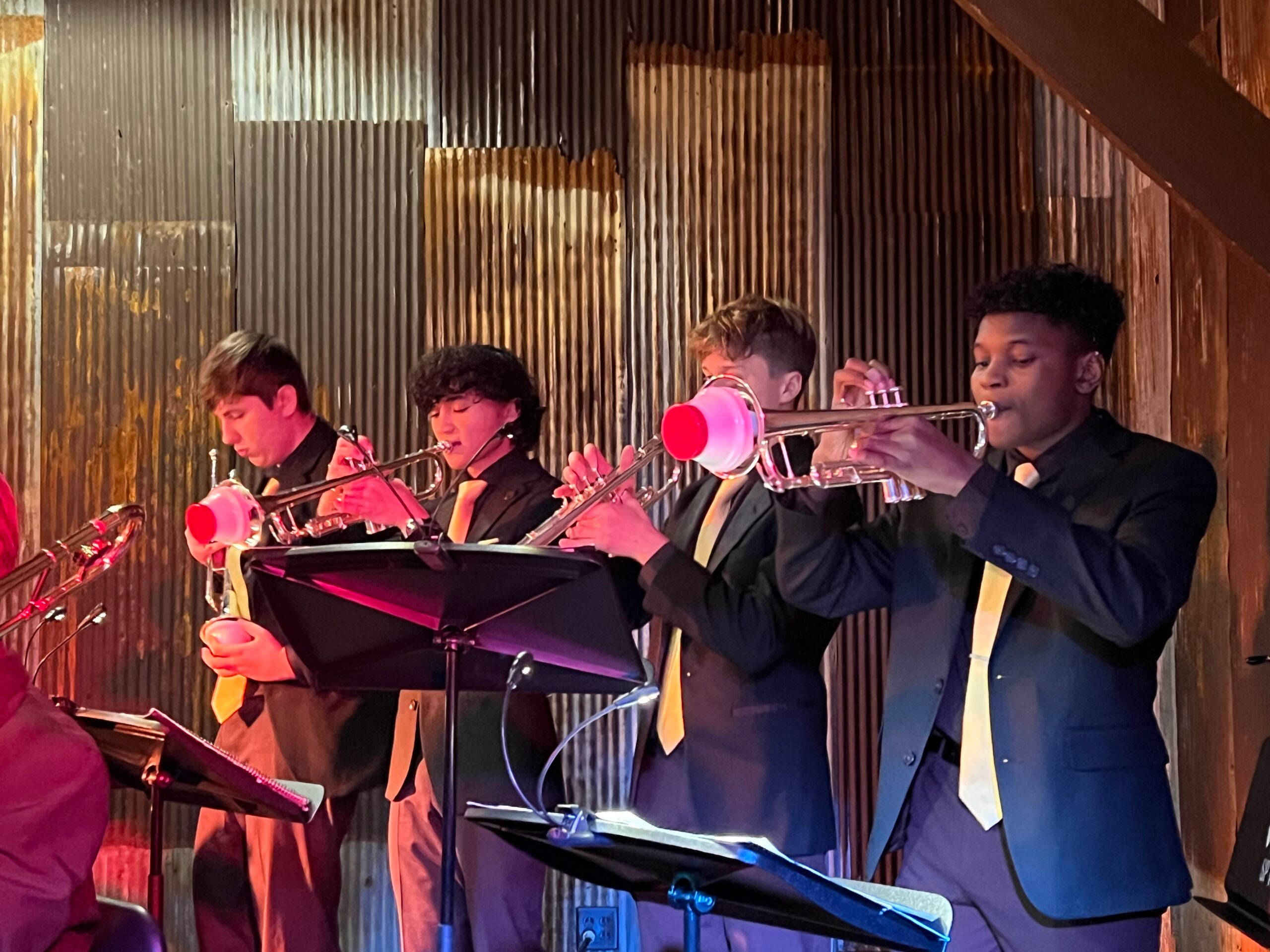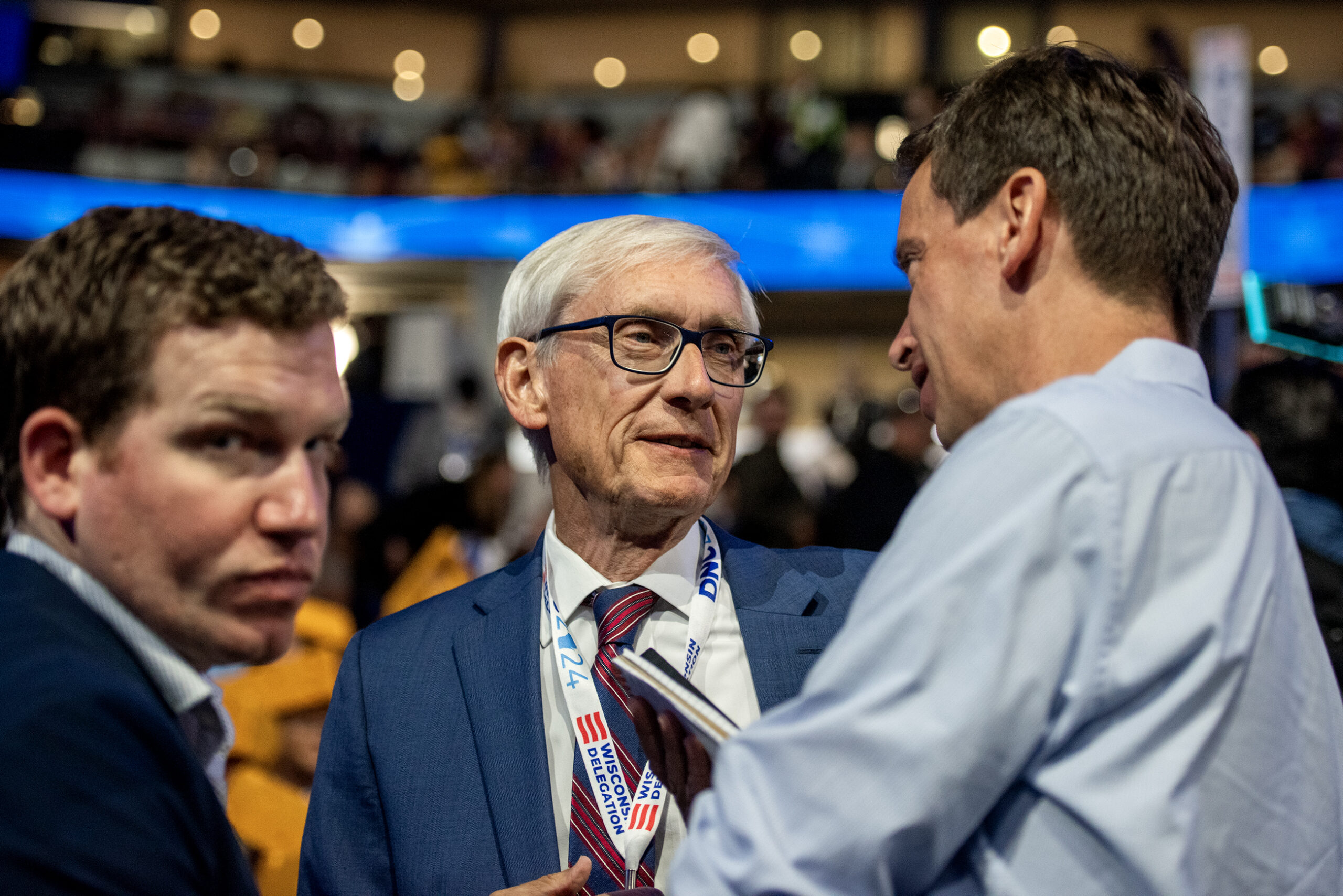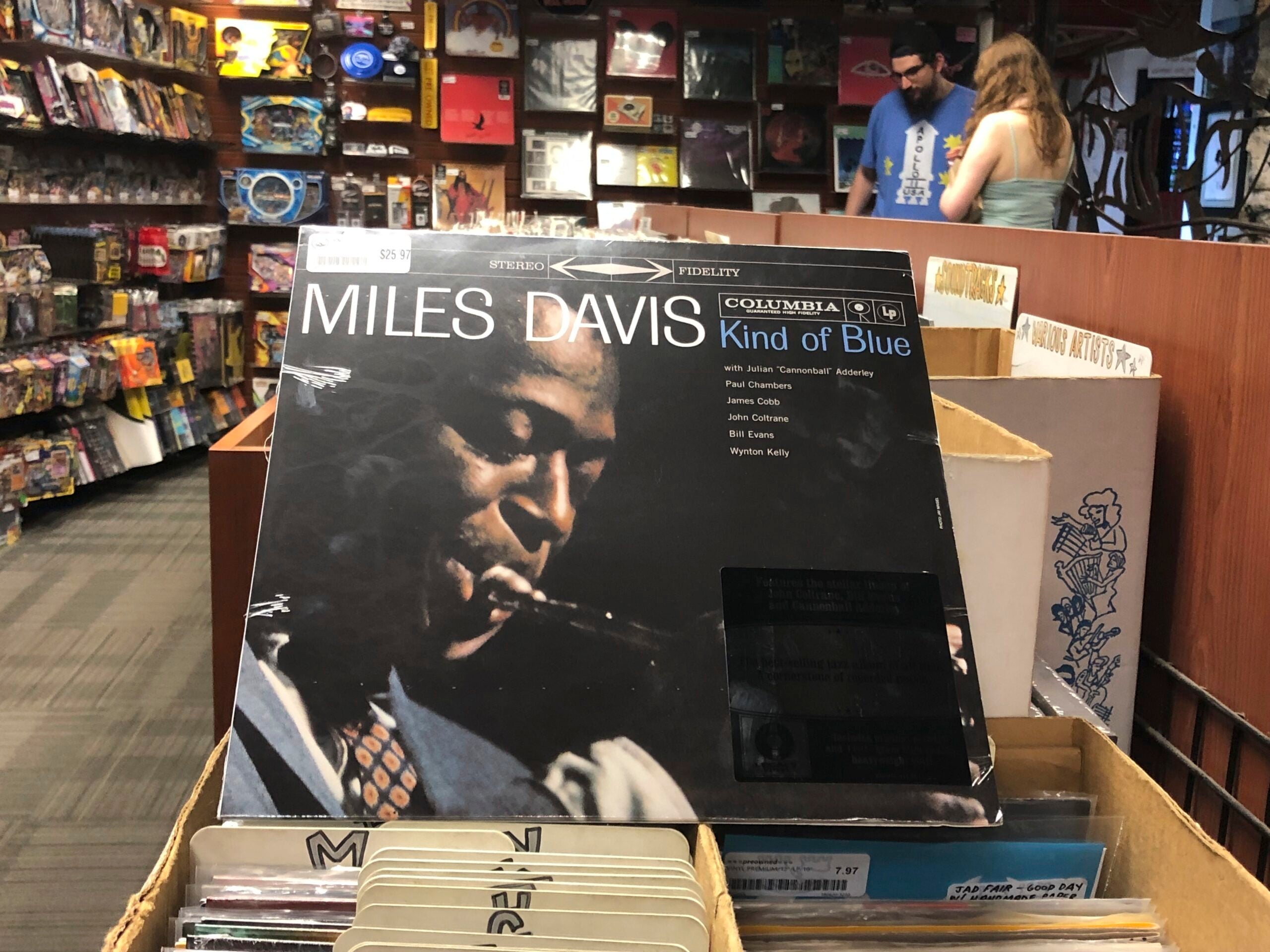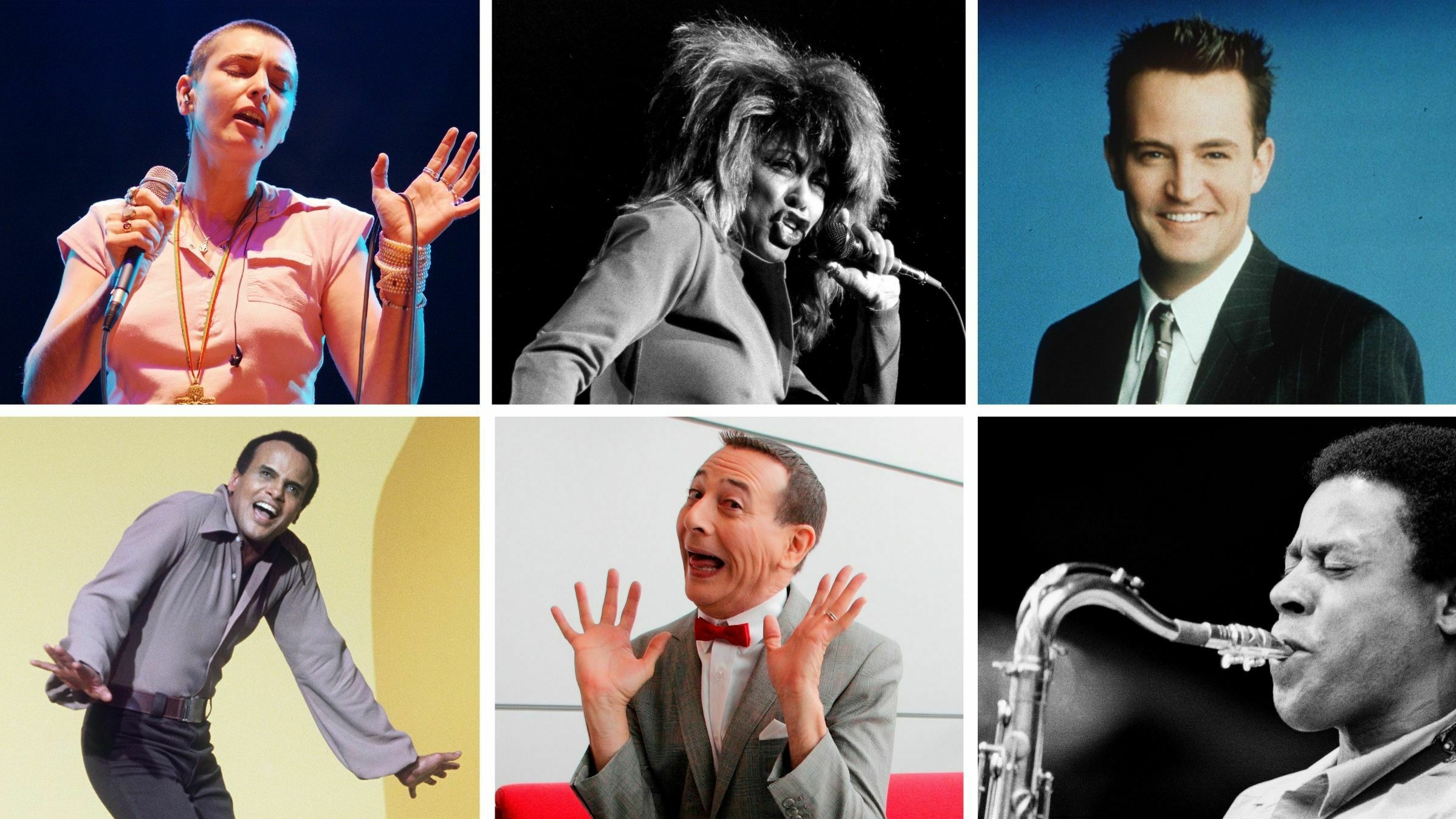Langston Hughes was an American poet and activist known as a key figure in the Harlem Renaissance of the 1920s and 1930s. Among his later works was an epic poem called “Ask Your Mama: 12 Moods for Jazz.” An effort to compose musical accompaniment to the poem, following Hughes’s own written instructions, has been led by Dr. Ron McCurdy, a jazz musician and professor at the University of Southern California. McCurdy brings his setting of Hughes 1960 jazz poem to Luther College on Friday, February 9, 2024 at 7:30 p.m. McCurdy spoke with WPR’s Ezra Wall for an episode of “Newsmakers.”
(Conversation edited for brevity and clarity)
Ezra Wall – WPR
When did you first become aware of Langston Hughes’s work? Is this something that you grew up with?
Ron McCurdy, PhD
My father was a high school principal and an English major. And as children, he would have me and my siblings engage in oratorical presentations at home. So, I learned “The Negro Speaks of Rivers,” a host of poems at a very young age. “I, too, sing America,” you know. So, at that time, I had no idea that this would become part of my life’s work, but I’ve had a fascination and a love affair with Langston Hughes since I was probably five or six years old.
Ezra Wall – WPR
“Ask Your Mama: 12 Moods for Jazz.” Does that mean the poem is written in 12 separate sections or movements, so to speak, to borrow a musical term?
Ron McCurdy, PhD
That’s it. Yes, twelve different moods and this poem is written by Langston Hughes in the 1960s to pay homage to those who were engaged in the struggle for freedom and equality among Africans and African Americans. We know from our history that that was a very pivotal time in the country. It was five years before the civil rights movement, the housing rights movement and the voting rights movement. And so Langston Hughes had been invited to serve as emcee of the 1960 Newport Jazz Festival in Newport, Rhode Island. The festival had been oversold by about 2000 tickets. Mostly young, white males had purchased tickets and couldn’t get in, and a riot ensued, and the governor of Rhode Island called out the National Guard to shut down the 1960 Newport Jazz Festival. First of all, they had the likes of Muddy Waters, Duke Ellington, Ella Fitzgerald, Sarah Vaughan there. But the festival was cut short because of the riot and Langston was so moved by that experience, and also what was happening in the world. You know, in Africa – Ghana – they were vying for their independence as well as what was happening here in America, it was five years removed from Rosa Parks refusing to give up her seat on a bus. Five years after Emmett Till was murdered in Money, Mississippi. So it’s a very politically charged piece. For those who were involved in the civil rights movement, this poem was Langston Hughes’s homage to those individuals who were part of that movement.
Ezra Wall – WPR
Langston Hughes passed away before he heard this work performed with the music that he had intended it to be performed with. How do we know what he wanted that music to sound like?
Ron McCurdy, PhD
Well, he wrote liner notes on the right-hand column of the poem. He had planned to collaborate with Charles Mingus, the Great Jazz bassist, and Randy Weston, who was the great jazz pianist. And he had written on the right-hand column of the poem what he heard in his head musically. For example, he would write “a triumphal march,” or “a fluttering sound.” Those were the kinds of instructions that he gave for Charles Mingus to follow. But Langston Hughes died in 1967 before he had a chance to have the peace realized as he had intended. So my group, I’m happy to say I think, was the first group to actually realize this work. I collaborated with Eli Bruggemann, who is now the musical director for Saturday Night Live. He was a grad student here at the University of Southern California back in 2000 and 2001. Eli had a very strong background in English literature, so I just talked to him and said, ‘Look, I have this project I want to write this music for, and I want to collaborate with you.’ So, he and I met every Tuesday and Thursday for about a year crafting the music, following some of the cues that Langston Hughes had written. It took us about a year to get this project done. We hope that we served Langston Hughes well by what we came up with
Ezra Wall – WPR
So in some ways, this is your own composition, even though you’re following the written instructions of Langston Hughes. You’re working with him, but you really are the composers?
Ron McCurdy, PhD
Yes. In fact, think of it as though we were writing the score for a movie soundtrack. But the poem itself is only about 45 minutes, which is not long enough to be a full-blown concert. So, what we also did in addition to writing the soundtrack that would accompany the text that Langston Hughes had written, we also composed music to serve as sort of a palate cleanser between each of the moods and help to sort of reinforce what we thought Lincoln was trying to get across to everyone.
Ezra Wall – WPR
Is there a unifying theme between the twelve moods? How are they linked together?
Ron McCurdy, PhD
They address different aspects of Langston’s life and also what was happening in the country. So, for example, the first one is called “Cultural Exchange.” “Ride Red Ride” is another mood’s name. So they all have different names and they all address a different aspect of the African America experience. The twelve moods also signify the Blues because we know the Blues is twelve-bar form. So there’s a very strong Blues component to this particular work as well. So we tried to honor what Langston had in mind because we didn’t talk to him about it. We didn’t really know for sure.
Ezra Wall – WPR
I’m interested to learn about how you became a musician. You’re an academic and a trumpet player. Is trumpet where you started? Did you take piano lessons? How did your musical journey begin?
Ron McCurdy, PhD
My father was an amateur trumpet player and he wasn’t very good. He played just enough to pique my interest. So I would grab his trumpet when I was about five or six years old. It was always too heavy for me. I would end up dropping it and getting the mouthpiece stuck, but he wouldn’t find out for months because he only played maybe twice a year. So, I dropped his mouthpiece and dropped his horn in January, he wouldn’t find out until April. But he would know exactly who had done it because I was the only one – and I have three other siblings – I was the only one who was interested in music.
Ezra Wall – WPR
When you think of those Harlem Renaissance figures like the poet, Langston Hughes, how influenced were they by the music that was going on around them at the time?
Ron McCurdy, PhD
Oh, very much so. I mean, how could they not be? It was a time coming out of in the 1920s, you know, F. Scott Fitzgerald, the Jazz Age, “The Great Gatsby.” I mean, it was one of those times when you look at history, it was a very pivotal time for artists. Think about prohibition and how that was used to further jazz music. Think about it. It was the gangsters, the Al Capones, the Oney Maddens who owned the venues. They needed places to sell their bootleg liquor. They have to have a reason to entice people to come to these venues, and that was black music. That was jazz. The poets of that time, the intellectuals, they understood the connections between music, poetry, dance and visual arts.
Episode Credits
- Ezra Wall Host
Wisconsin Public Radio, © Copyright 2026, Board of Regents of the University of Wisconsin System and Wisconsin Educational Communications Board.





